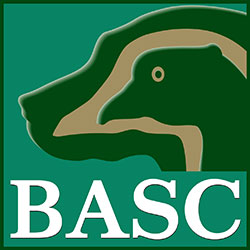 COLIN SHEDDEN, BASC director Scotland, says UK shooters should be ready to counter the threats and grasp the opportunities that may arise.
COLIN SHEDDEN, BASC director Scotland, says UK shooters should be ready to counter the threats and grasp the opportunities that may arise.
A great deal has been written about the UK leaving the EU since the referendum last June but not much has actually been concluded, other than a commitment by the Prime Minister to pursue a hard Brexit.
As shooters we are aware that for the last 40 years much of what we can and cannot do has been determined in Brussels or Strasbourg and there is some attraction in the thought that, at some point, we will lose this level of scrutiny and control. However, there are pluses and minuses on the immediate horizon. BASC, at both staff and Council level, have been keeping a close eye on what changes we can anticipate and how these could affect us, both on the ground and for the long-term future of shooting sports in the UK.
Also, Defra secretary Andrea Leadsom has confirmed that consultations will soon be launched on a 25-year plan for food and farming and a separate 25-year plan for the environment. These plans look likely to be used as the vehicle to develop post-Brexit farming and environmental policy.
A recent report of interest came from the House of Commons Environmental Audit Committee – entitled The Future of the Natural Environment after the EU Referendum. Not a light read but it did make a number of recommendations, including a call for a new Environmental Protection Act “to maintain the UK’s environmental standards”. This new act, the Committee recommended, should be in place before we leave the EU to reduce the risk of so-called zombie legislation. Zombie legislation is a term that describes EU legislation that has already been incorporated by the UK but would not then be updated after we leave the EU. It is felt that about one third of over 800 pieces of EU environmental legislation will be difficult to transpose into UK law, which gives an indication of what is ahead of us. Much of this change will probably not affect shooting directly, but many aspects of Brexit will.
From an agricultural perspective, we recognise that current direct CAP payments to UK farmers amount to £2.88 billion per annum and that any changes to this level of support will have significant impacts on how 70 per cent of our land (most of it also influenced by and used for shooting) is managed.
BASC will aim to ensure that any new agri-environment schemes do not restrict shooting in any way but actually enhance shooting’s contribution, both environmentally and economically. If food production is to be maximised, then pest control becomes even more important. If conservation-friendly farming was to be reduced, then shooting could also suffer through loss of habitat for both wild and reared gamebirds.
While the UK’s forestry policies are not wholly governed by EU regulation, there are ambitious targets for forestry expansion in each of the home countries and these in turn are supported by some EU funding. What is important is that forestry expansion should not adversely affect existing shooting, such as grouse shooting on moorland, but should enhance the opportunity for more deer management, for example.
From a firearms perspective, we are aware that the ongoing discussion over the EU Firearms Directive will probably result in only minimal impacts on us in the UK, albeit there are concerns for firearms owners in other EU member states. When we leave the EU we should not expect any relaxation but a question mark will inevitably hang over our ability to continue to use the EU Firearms Pass to travel freely in Europe with shotguns and rifles. There may also be other trade agreements that require negotiation.
These are just a few of the issues that we need to monitor and influence in the run-up to the signing of Article 50, and beyond. Others include the prospect of further devolution and even the possibility of another independence referendum in Scotland. There are threats, obviously, but there are also opportunities and we must remain alert to them all.
